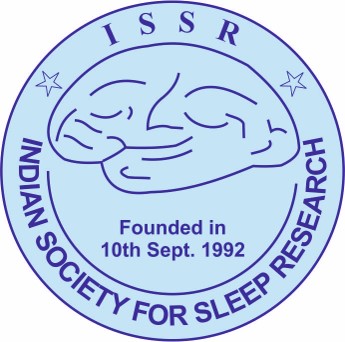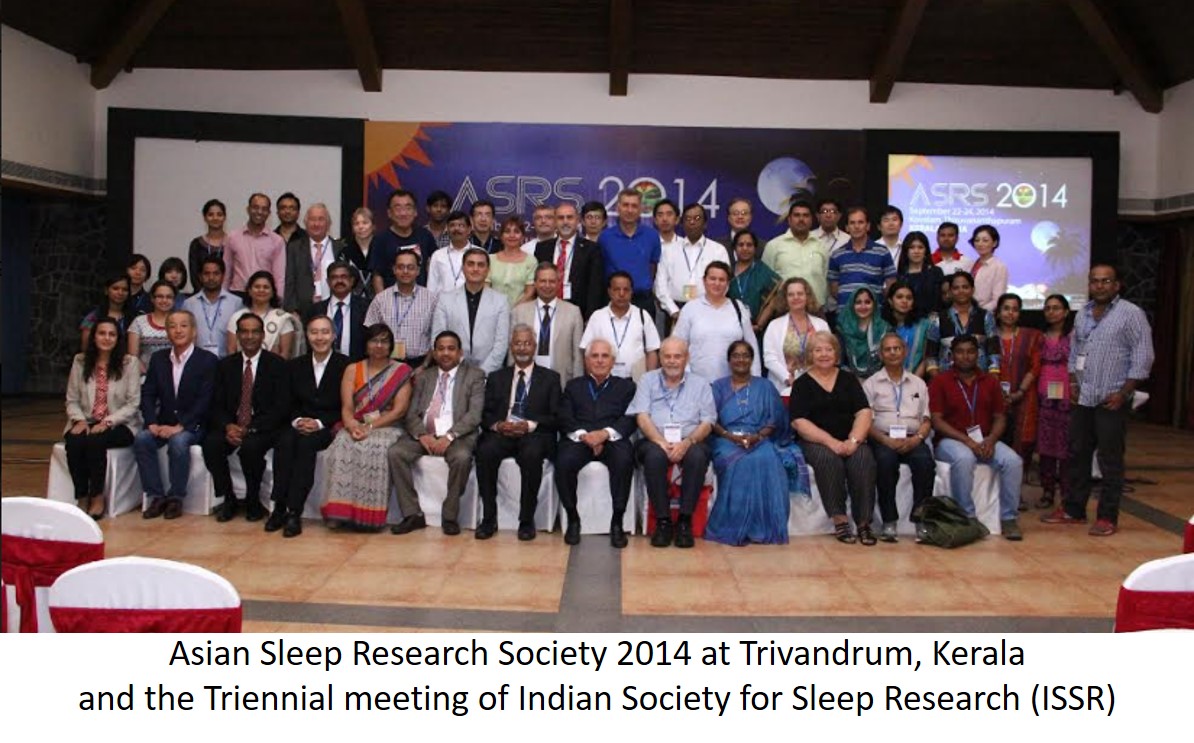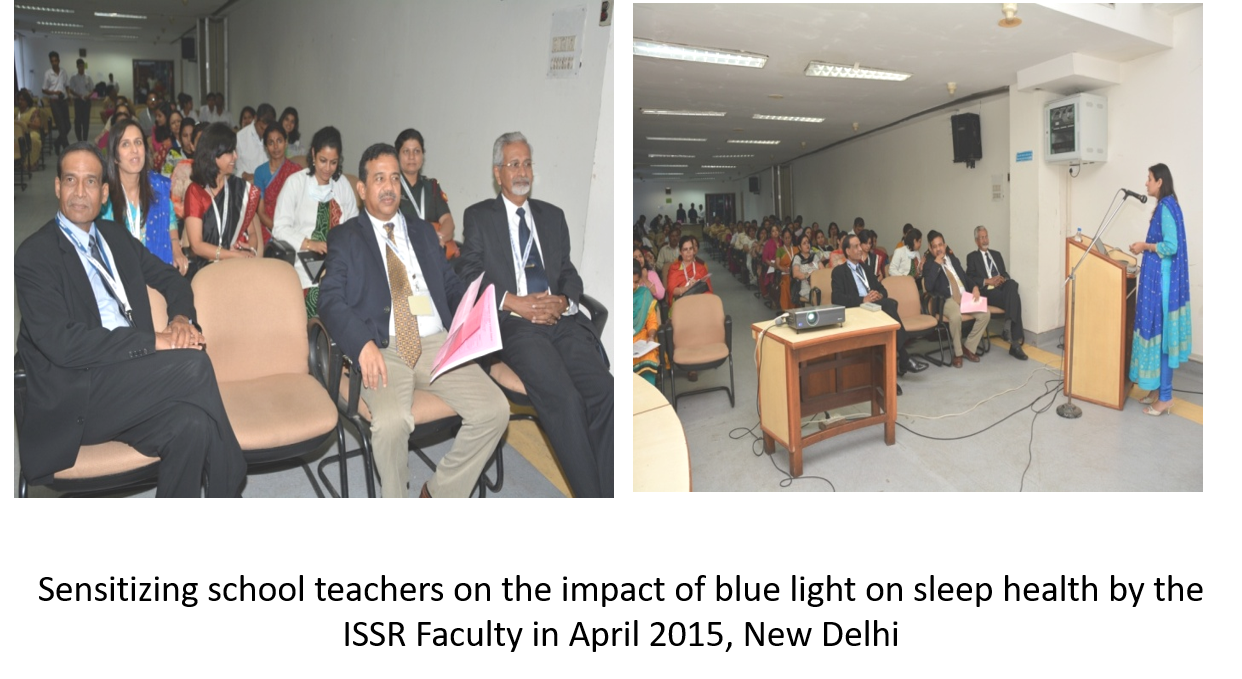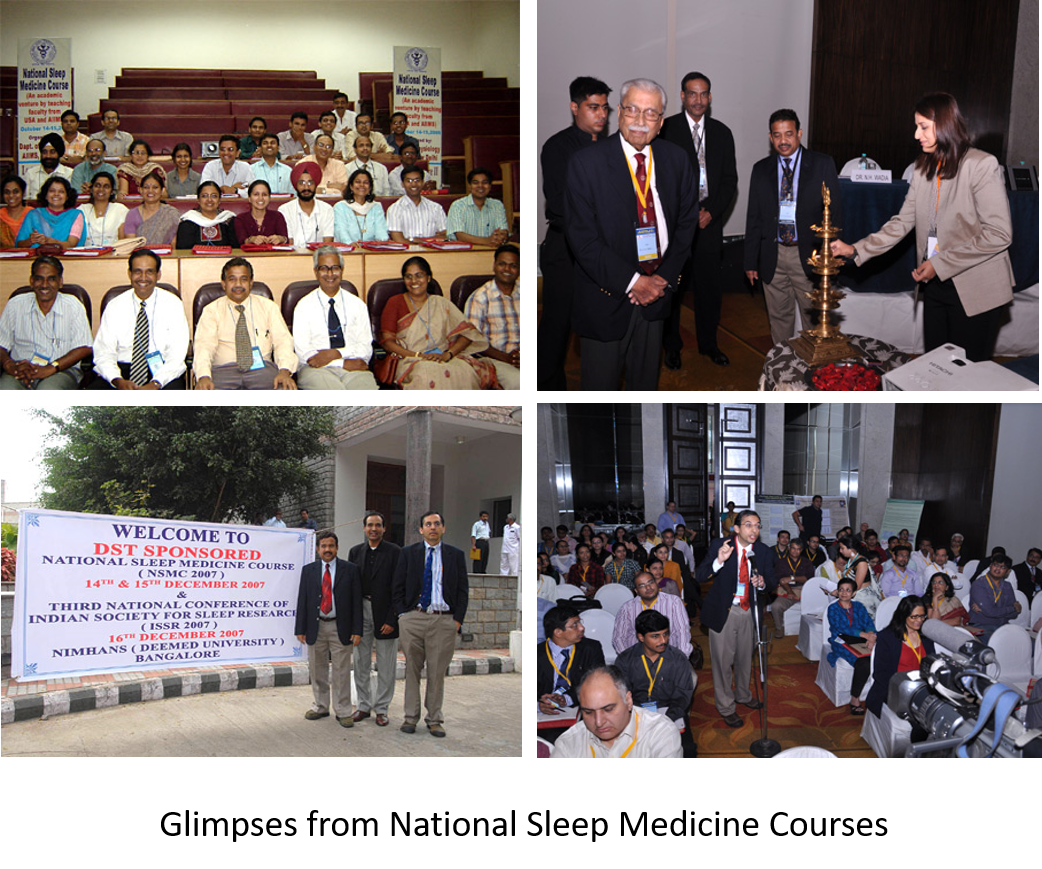Four Questions with Indian Society for Sleep Research (ISSR)
As answered by: Dr. Hrudananda Mallick
1. The Indian Society for Sleep Research’s activities include the Organization of the Triennial National Conferences – can you explain what that is and why it is important?
Triennial National Conference: What it is?
The Indian Society for Sleep Research (ISSR) was established in the year 1992 and it is the oldest scientific society devoted to sleep science and medicine in India. The objectives of the Society are exclusively scientific, academic and literary. For the furtherance of these objectives, the society provides an opportunity for the exchange of information pertaining to sleep research and sleep medicine, by holding of periodic scientific meetings. we host our national conference once in every three years as the awareness of sleep medicine is at its infancy in this country. The scientific programme includes symposia, oral and poster presentations and young scientist colloquium. About 50 travel grants are awarded to encourage youngsters to participate in this meeting. The best poster presented in the conference carries a reward.
Why it is important?
The state of the art conference brings latest knowledge in sleep science and sleep medicine to the country. This conference is an important platform for young and established sleep scientists and physicians from India to present their work. It involves the participation of post graduate medical students, practitioners, and scientists from both India and abroad. It is an opportunity for the Indian scientists and physicians of Indian origin working abroad to come home and share their knowledge, experience and expertise in the field.
2. What are the specifics of the Annual National Sleep Medicine Course and National Sleep Technology Course?
The National Sleep Medicine Course
Introduction: The National Sleep Medicine Course (NSMC) is organized in collaboration with the academic faculty from United States, Japan and India. The course aims to provide basic science, technical aspects and clinical science education to the Indian audience. The needs assessment analysis during the, 2nd Interim World Congress of World Federation of Sleep Research Society and Medical Societies in September 2005 highlighted the urgent need for Sleep Medicine education initiative in India. The first course (NSMC 2006) was organized in AIIMS, New Delhi during October 14-15, 2006 on an experimental basis under the initiative of Dr. Deepak Shrivastava from UC Davis, USA. The overwhelming response and clinical success of the NSMC 2006 has encouraged us to continue the programme annually on a regional basis since 2006. Recently the course attracted participants from Iran, Sri Lanka and Bangladesh.
Target audience: General practitioners, specialists, healthcare professionals, residents and students. The course is limited to 100 participants and they receive a certificate of merit upon successful completion of the course.
Objectives: The 2-Day course is designed to cover major topics in sleep medicine over two days of didactic sessions and workshops covering following topics
Sleep basics: Physiology and pharmacology, Nuts and bolts of a sleep laboratory
Sleep Technology including Polysomnography: Technical aspects, interpretation and sleep stage scorings, and whole night polysomnograpghy
Clinical sleep medicine: Obstructive sleep apnea, narcolepsy, restless leg syndrome and periodic limb movement disorder, insomnia, parasomnias pediatric sleep disorders, circadian rhythm disorders, psychiatric disorders and sleep, medical disorders and sleep, epilepsy and sleep.
Sleep Hygiene
National Sleep Technology Course has been organized every year since 2012.
The field of sleep medicine has grown significantly due to increased public awareness of sleep disorders. With this growth has come the need for accessible educational opportunities for Polysomnographic Technologists who perform a crucial role in the diagnosis and treatment of sleep disorders. Polysomnographic technologists should have special training to perform polysomnograms (PSG) for the diagnosis and treatment of sleep/arousal disorders, including the management of nasal positive airway pressure titration for obstructive sleep apnea syndrome. These individuals should safely operate sophisticated medical equipment to record various parameters of sleep/wake physiology. A lifelong learning would be necessary if the services provided by sleep technologists have to inspire professional excellence, and international recognition. They must not only be well-versed in instrumentation used in a sleep laboratory, but should also have a good knowledge of the sleep-induced physiological changes. There is no formal course or training available for Sleep technicians in India. Therefore, it is a key initiative by ISSR to organize National Sleep Technology Course to teach and train these technicians over a two-day intensive workshop including whole night sleep recording.
3. About how many members do you have?
We have two types of membership; life members and biennial members. There are total of 360 members: 100 life members and 260 biennial members.
4. Why did you choose to become a member of World Sleep Society?
The Indian Society for Sleep Research is an associate member Asian Sleep Research Society (ASRS) and ASRS is a constituent member of World Sleep federation. ISSR had the honour of hosting 2nd Interim Congress of WSF in 2005 in New Delhi and 8th ASRS Congress in Kerala in 2014. WSF has been conducting International Sleep certification programme for Indian sleep specialists for the last five years. Now WSF and WASM have merged into WSS which is now the apex international scientific body. The ISSR and its members believe in the programme and policies of WSS for advancing sleep health worldwide.
Association with WSS will be immensely beneficial for its members as a platform for international exchange, collaboration, academics, research, publications and recognition.



